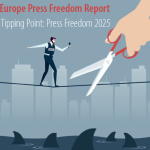Lord Patten, the Chancellor of Oxford University and the last British governor of Hong Kong, says it’s important that the rest of the world engages with China on major issues such as climate change and health – but must also defend its wider interests and values.
He was speaking at a guest lecture on 4 October co-hosted by the AEJ UK and Regent’s University.

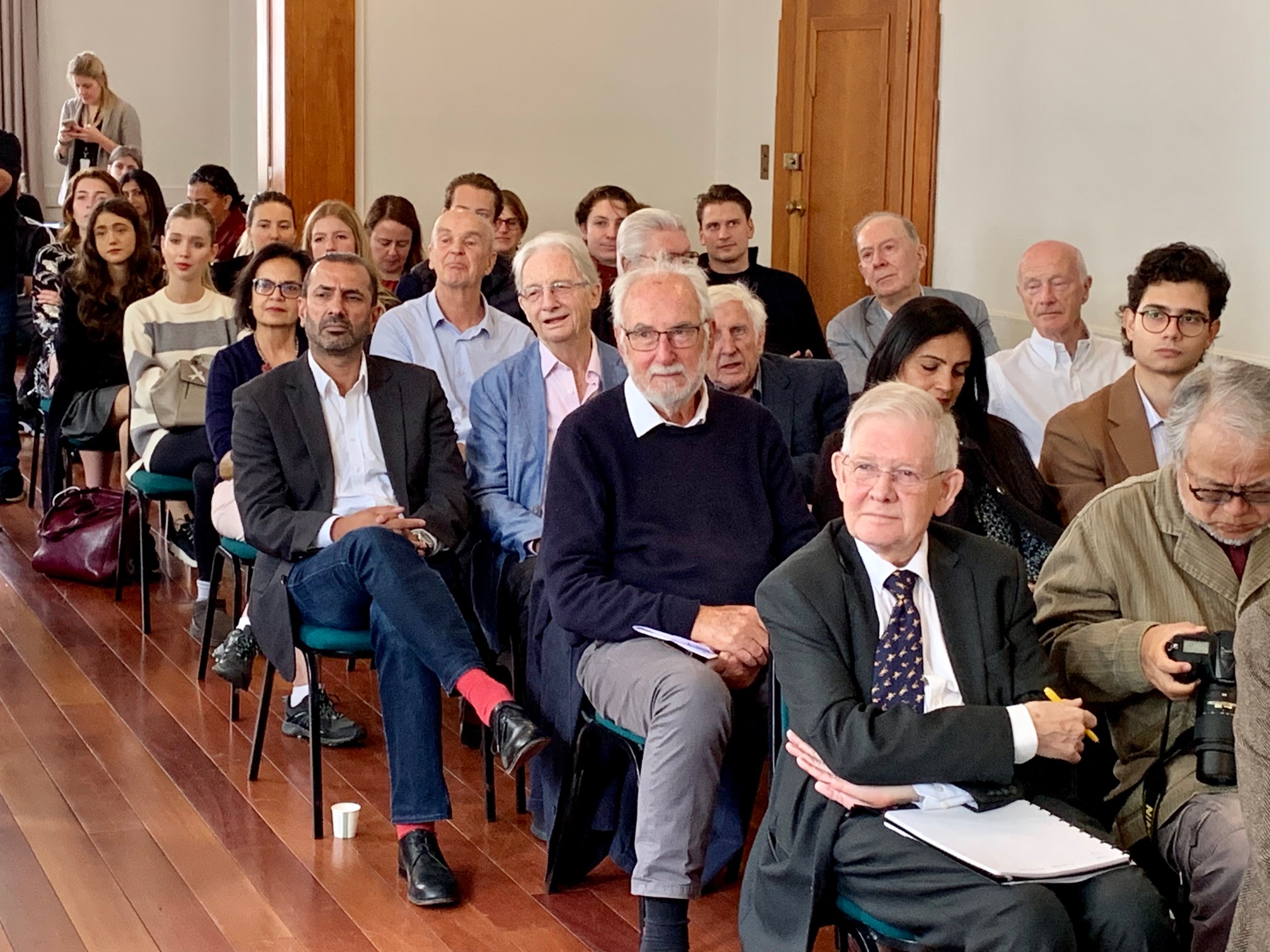
AEJ UK Secretary Charles Jenkins has this report on the event:
Chris Patten acknowledged that the buy in of the ruling Chinese Communist Party is essential to dealing with issues like global warming and health. However, we should be robust in standing up for our wider interests and values. We should also be aware that promises made by the Chinese Communist Party are not always kept, as has been the case with the agreement accompanying the transfer of Hong Kong by the UK to China, and with many of its undertakings to the World Trade Organisation. Moreover we should not equate the Chinese Communist Party with the Chinese people.
The Chinese economy, he argued, has passed its peak and is now experiencing enormous problems:
- growth reduced from 8% a year to 2%;
- ageing of the population;
- internal debt more than three times of GDP;
- property companies built up akin to Ponzi schemes;
- unemployment of young people up to 20% last year, with the fact that it has not been published this year suggesting a further rise.
China remains a formidable exporter, running a surplus of $400bn with the EU for example, but this shows that its economy is actually more dependent on Europe and the US than vice versa. The Party’s moral authority used to be based on an unwritten contract between the Chinese people and the Party that the people kept out of politics in exchange for improving living standards and for the state keeping out of private lives and business. The stuttering economy together with the extreme lockdown for Covid and attacks on private tech companies has brought this to an end, with the regime’s only way to try to remain popular being to encourage nationalist fervour. This has led to an increasingly aggressive language on Taiwan with British intelligence services suggesting a 50% chance of invasion. Patten does not however think they will invade because of the devastating economic consequences it would have. They will continue to make a lot of noise and stamp. He said we should stamp back. We should not “decouple but derisk”, reducing our excessive dependence on China for certain exports and universities should reduce their financial dependence on Chinese students while ensuring that those they have are not constrained in their broader education.
Chris Patten first went to Hong Kong with a delegation of MPs in 1979. He liked the territory but horrified the then governor Murray Macklehose by writing an article on his return calling for elections for district councils. He then visited China as environment minister in the 1980s, seeking with the US and others successfully to bring China on board in global efforts to combat ozone-depleting chemicals.
During the period Chris Patten was governor, Hong Kong was doing very well economically, and so, from a very different starting point, was China, as it opened up following the reforms of Deng Xiaoping. It was the beginning of a 15 year period during which Chinese exports rose by 1,600% and GDP was doubling every 7-8 years. The public finances of Hong Kong were so good that the government was able to reduce already low taxes while increasing spending on health, education and infrastructure, and also increasing financial reserves, and under Chinese
instructions refraining from borrowing. At the time Hong Kong joined China, its GDP per head was higher than that of the UK, Canada or Australia and its total GDP higher than Malaysia and Singapore together. The period of his tenure was also a time when British exports grew faster than that of any other OECD country. Despite this, British businesses complained constantly that they were being disadvantaged by Patten’s arguments with the Chinese over democracy, human rights and the rule of law. The actual figures suggest that whatever they say the Chinese do business like everyone else by giving priority to their commercial interests.
A significant proportion of the population of Hong Kong was then composed of refugees from mainland China. This was also the case for most of the civil service, the best civil service Patten says that he ever worked with.
Patten recalled a visit to a mental hospital where a well dressed inmate who asked why Britain being one of the oldest democracies was handing over Hong Kong without the consent of its people to China, the world’s oldest totalitarian state. Patten could only answer that he was trying to provide the basis for what was then China’s official policy of one country, two systems.
Despite flaws, the description of one country, two systems could be said to apply to Hong Kong for the first 15 years or so after the transfer. Although the Chinese Communist Party did not implement much of the transfer agreement even then, it remained recognisable as the place it was in the 1990s. This changed when Xi Jinping came to power in 2013 since when its differentiating characteristics have been rapidly taken away. The reason according to Patten is that the Hong Kong way of life was a threat to its control. Soon after assuming the leadership Xi Ping issued instructions to party and government cadres to engage in an “intense struggle” against a list of things, which happened to coincide to a large extent with the characteristics of Hong Kong. The ideas of liberal democracies in the
outside world are more of a threat to the Chinese Communist Party than vice versa: “It is drivel to say that the rest of the world has always regarded China as a threat. What is true is that Xi Ping’s Communist Party has always regarded the rest of us as a threat”, by which he meant not our military but our way of life and ideas. But we also are flawed. He quoted Adlai Stevenson as saying that it is “not enough to fight for your values you have to live up to them as well”, adding “I do rather worry at the extent to which we can live up to our values”.
Report on lecture on Japan Forward website
Some selected quotes from Lord Patten’s lecture
Lord Patten lecture from David Benyon, insurance journalist and editor of the Political Risk Podcast
Link to photo gallery from Lord Patten’s lecture
AEJ photos courtesy of Doros Partasides
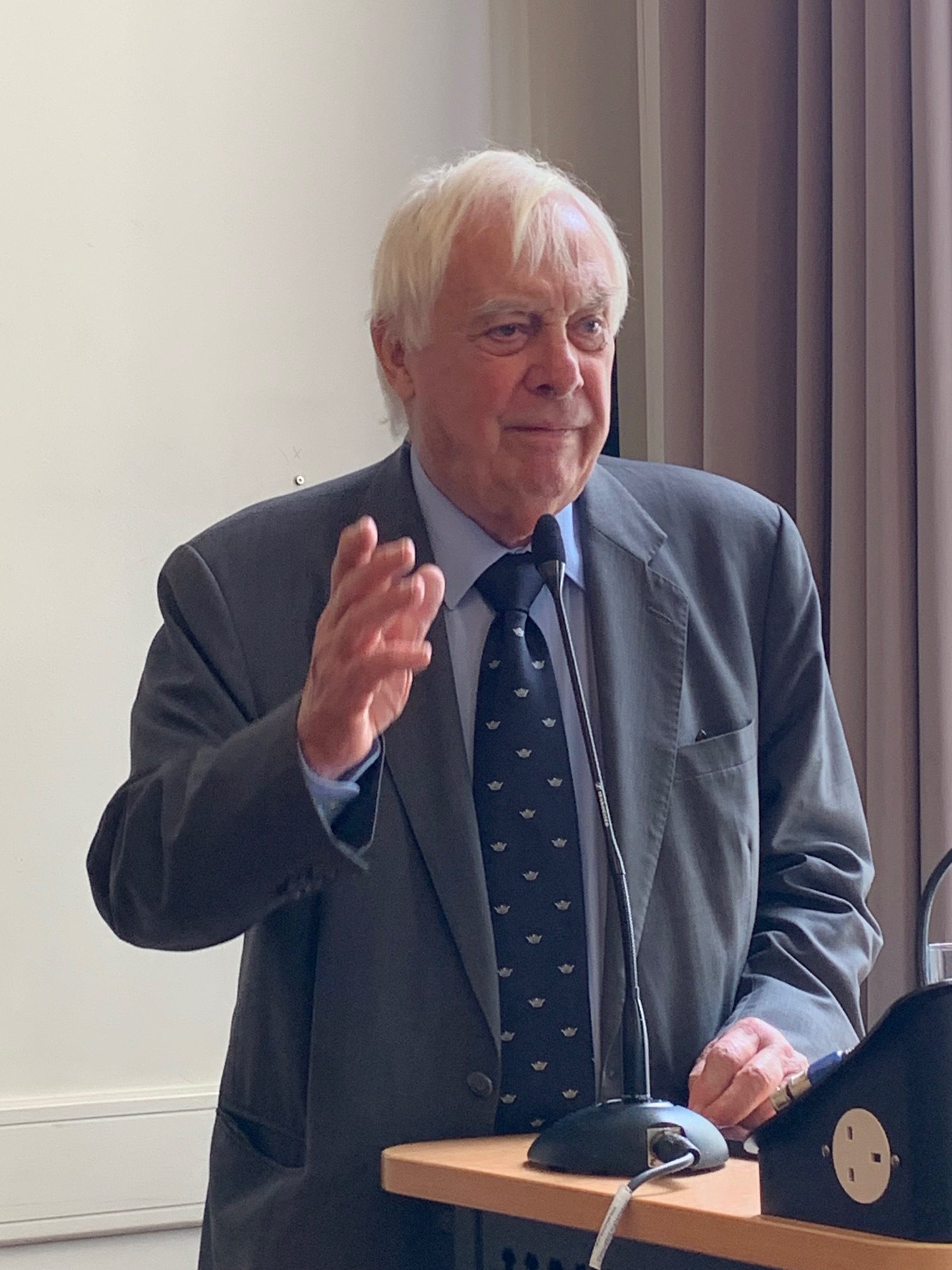
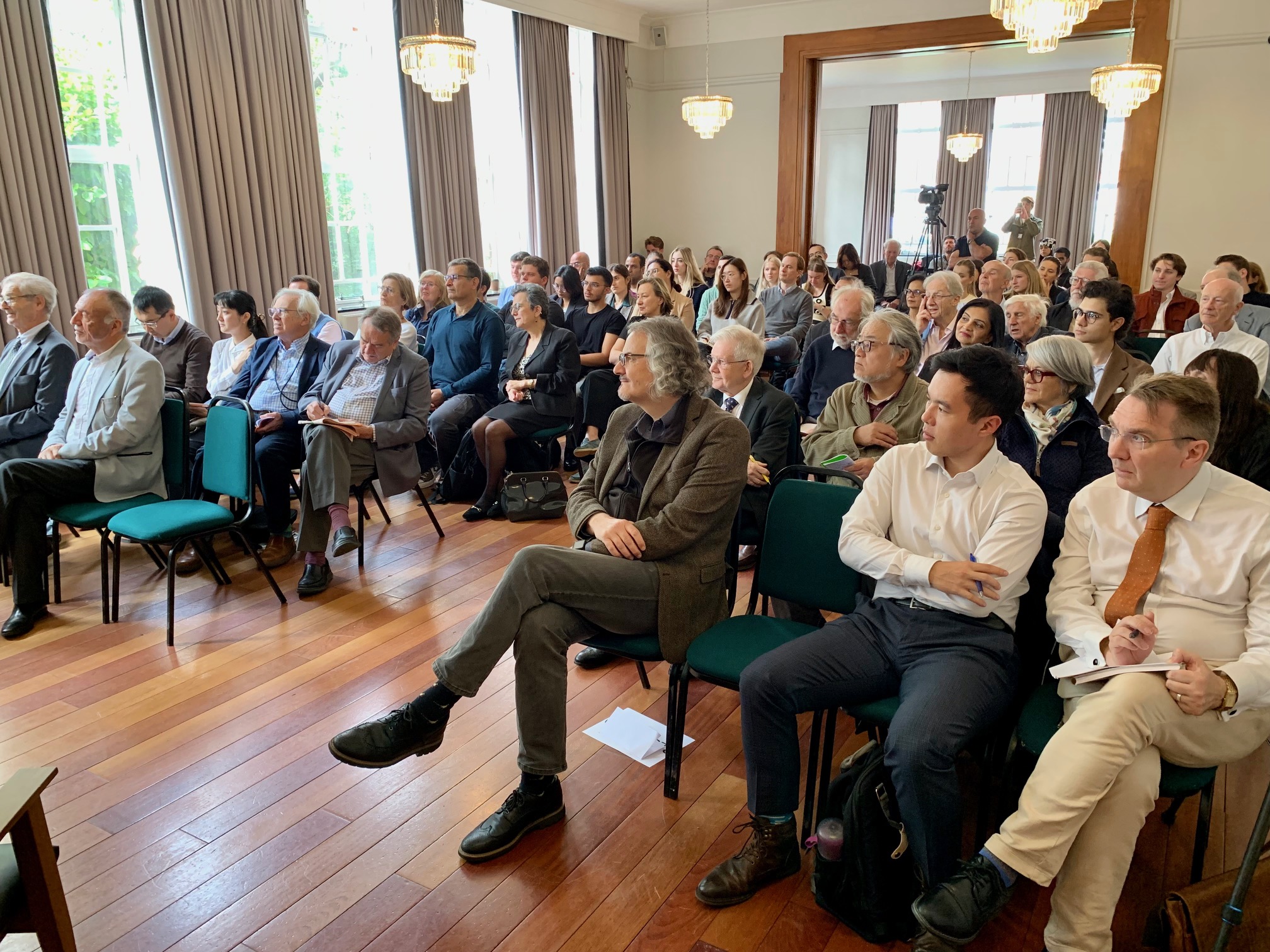
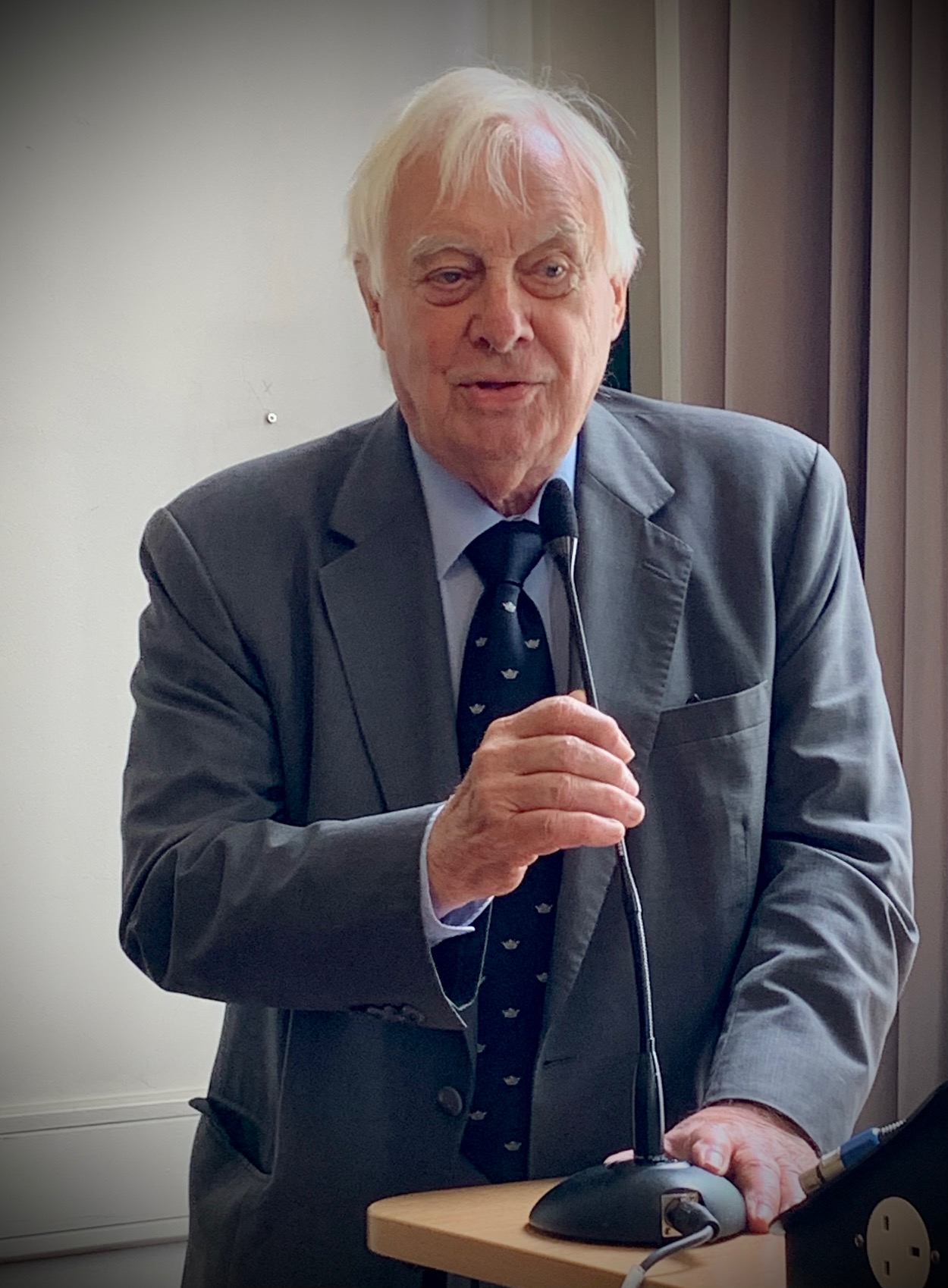

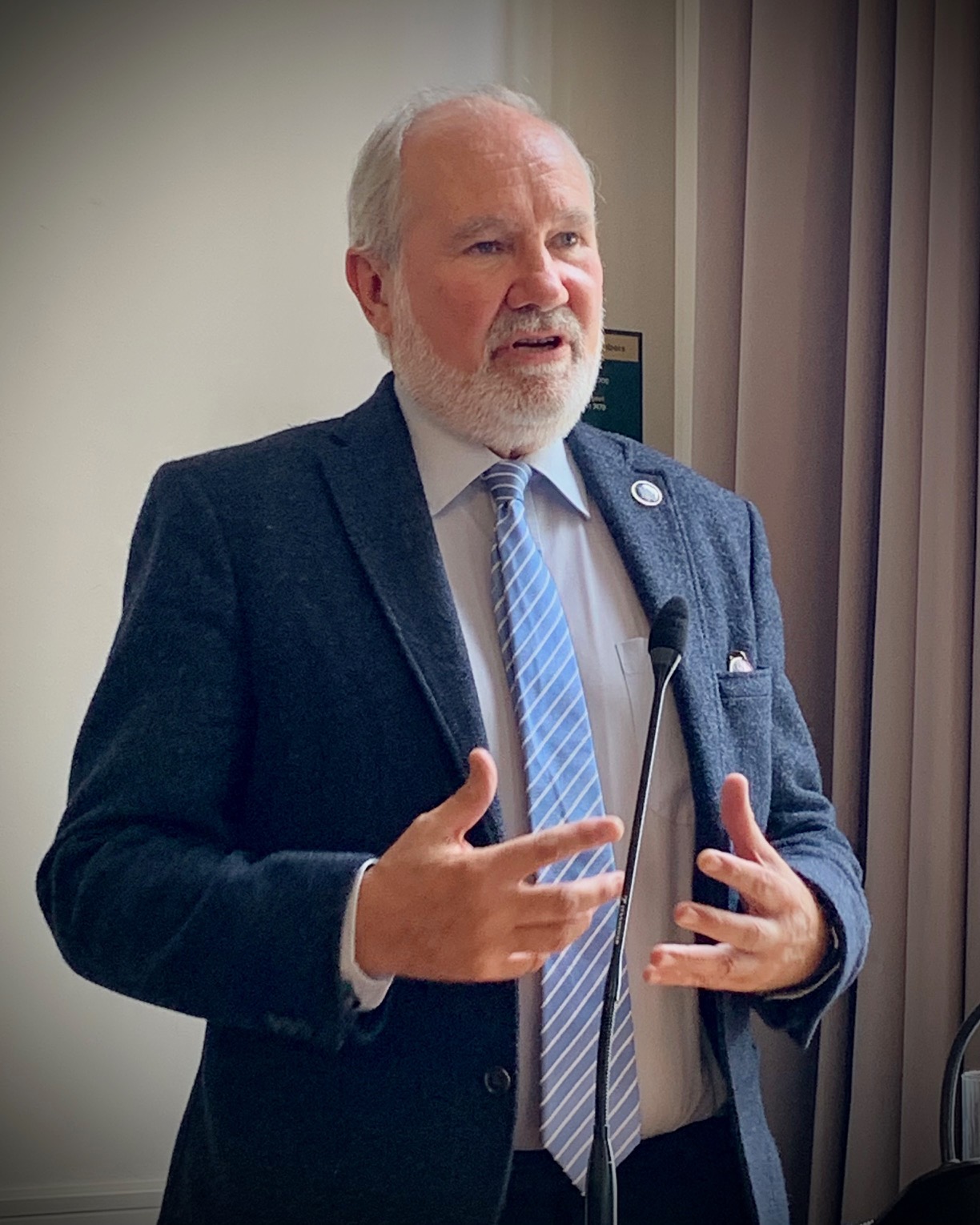
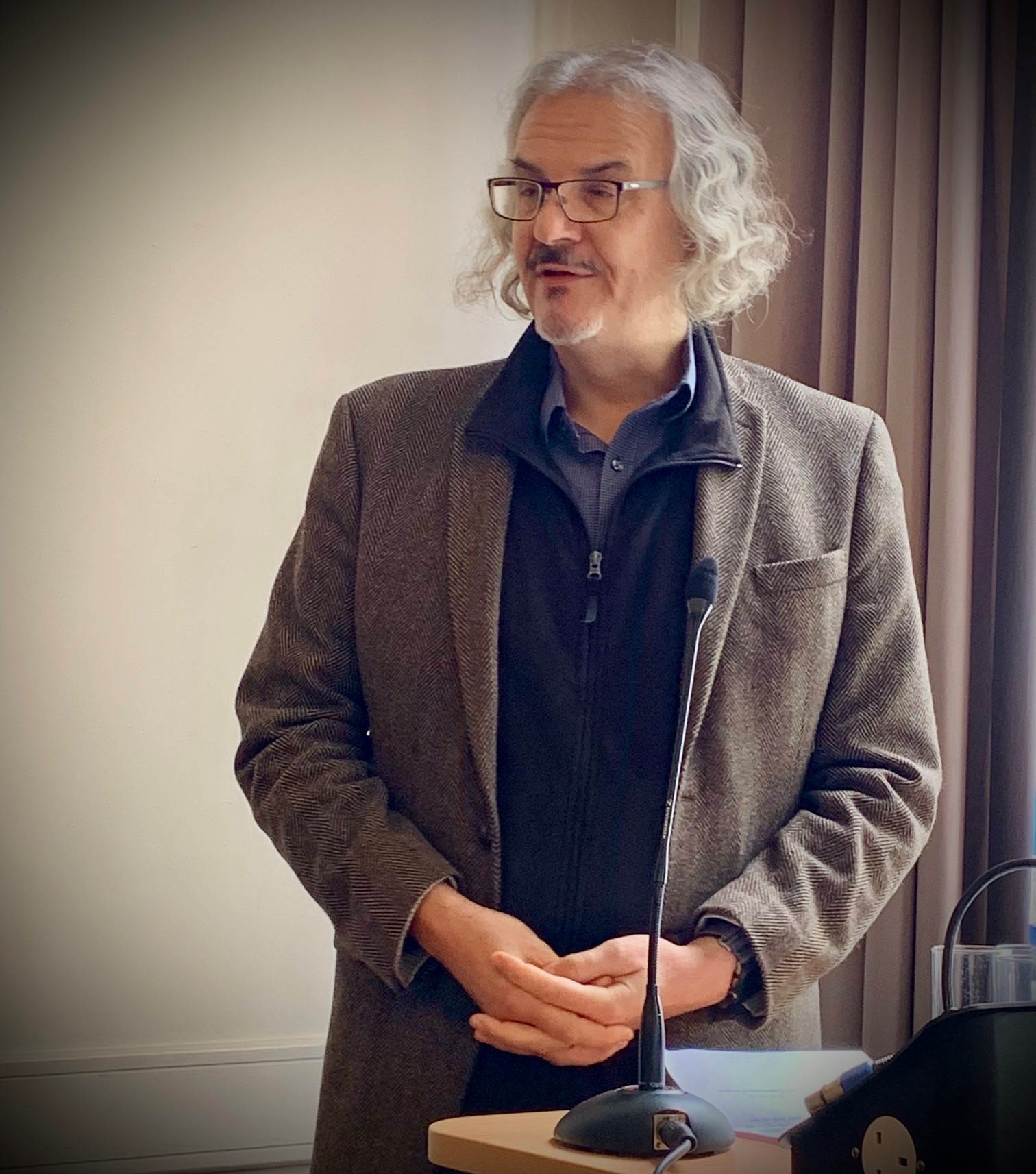
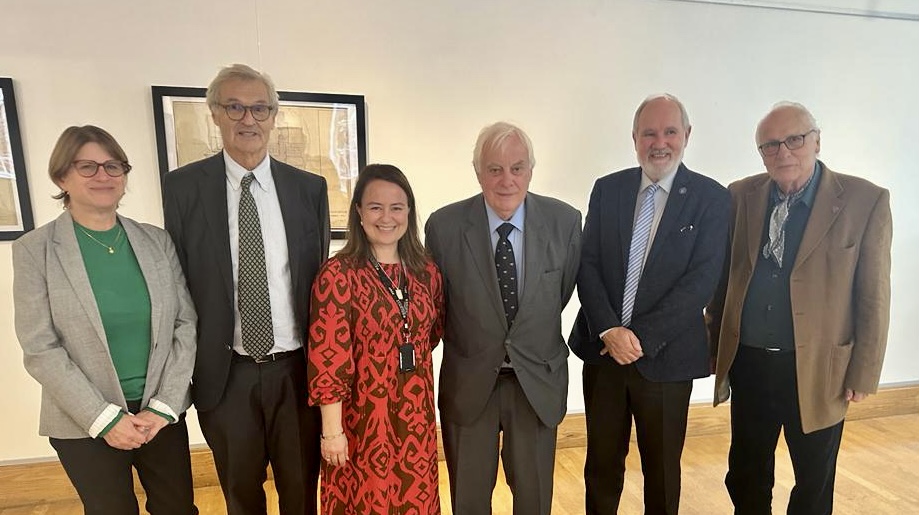

• Reports on AEJ UK meetings can be accessed via the Events tab on this site.


